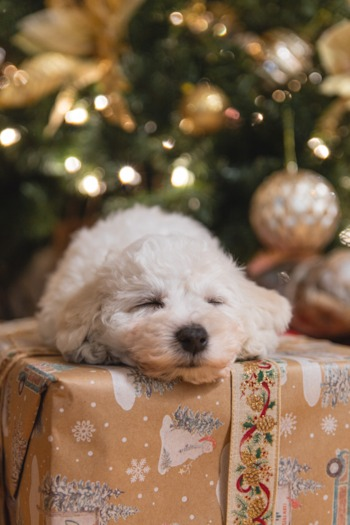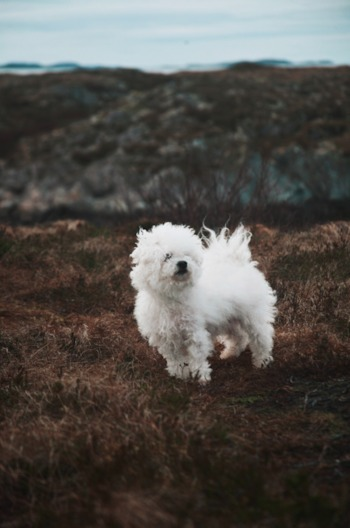Bichon Frise Breed Information


The Bichon Frise is a charming, lively, and adorable breed that makes for an excellent family companion. These little dogs are known for their fluffy, white coats and their playful, gentle nature. They tend to be very affectionate with their families, easily adapting to various household settings. With their high levels of intelligence, Bichons are quite eager to learn, making them a joy to train.
Socializing is second nature to the Bichon Frise, as they are always eager to make new friends, both human and canine. Due to their innate friendliness and cheerful demeanor, they can be wonderful therapy dogs, bringing joy and comfort to those in need. However, it is important to remember that these dogs require regular grooming to maintain their beautiful coats and prevent matting.
Characteristics
- Affectionate and Friendly Companions: Bichon Frises are well-known for their gentle, loving nature and their ability to form strong bonds with their families. They are especially great with children, making them perfect family pets. Their friendly disposition also extends to other animals, ensuring a harmonious household with other pets.
- Adaptable to Various Living Spaces: Bichon Frises are highly adaptable dogs that can comfortably adjust to different living environments. Whether you live in an apartment or a house with a yard, these little dogs can thrive as long as they receive adequate exercise and mental stimulation.
- Hypoallergenic Coats: One of the most appealing characteristics of the Bichon Frise is its hypoallergenic coat, making them an ideal choice for individuals with allergies. Their soft, curly hair produces minimal shedding, which significantly reduces allergens in the home.
- Highly Intelligent and Trainable: Bichon Frises are intelligent dogs with a natural eagerness to learn. They respond well to positive reinforcement training methods, making them relatively easy to train. Early socialization and consistent training are essential to ensure well-behaved, well-rounded dogs.
- Regular Grooming Requirements: Bichon Frises need regular grooming to maintain their beautiful, fluffy coats. This includes brushing several times a week, professional grooming every few months, and routine bathing. Proper care prevents matting and keeps their skin and coat healthy.
- Playful and Energetic: Bichon Frises are known for their playful, spirited nature. They love to engage in interactive games and activities with their families. Daily exercise is essential for their physical and mental well-being, and it helps to prevent boredom and destructive behaviors.
- Excellent Therapy Dogs: The Bichon Frise's affectionate, friendly demeanor makes them perfect candidates for therapy work. Their ability to connect with people and provide comfort has made them popular choices for visiting hospitals, nursing homes, and schools as therapy dogs, brightening the lives of those they meet.

Appearance
The appearance of the Bichon Frise is undeniably captivating, with their fluffy, white coat and expressive eyes winning hearts wherever they go. This small yet sturdy breed has a distinct look that sets them apart from other small dog breeds, making them instantly recognizable.
The Bichon Frise typically stands between 9 and 12 inches at the shoulder and weighs between 10 and 18 pounds. They have a compact, well-proportioned body, giving them a balanced and harmonious appearance. Their dark, round eyes are full of curiosity and intelligence, while their black nose and lips provide a striking contrast against their white fur.
One of the most distinguishing features of the Bichon Frise is their hypoallergenic, double coat. The outer coat is comprised of soft, curly hair that gives them their signature "powder puff" appearance. The undercoat is dense and plush, providing insulation and protection. The Bichon's coat is predominantly white, although they may have subtle shades of cream, apricot, or gray around their ears or body.
Grooming plays a vital role in maintaining the Bichon Frise's appearance. Regular brushing is necessary to prevent matting and tangling, while professional grooming every few months will help to maintain their coat's shape and overall health. In addition to coat care, routine nail trimming, ear cleaning, and dental care are essential to keep these charming dogs looking and feeling their best.
Temperament
The temperament of the Bichon Frise is one of the many reasons this breed has endeared itself to dog lovers around the world. Known for their affectionate, friendly, and cheerful disposition, Bichons are often described as the quintessential companion dog.
At the core of the Bichon Frise's temperament is their unwavering love for their family. They form strong bonds with their owners and are happiest when they can spend quality time with them. This breed is incredibly social, making them great additions to households with children and other pets. Their gentle nature and patience make them ideal playmates for kids, while their playful spirit ensures endless entertainment for the whole family.
Bichon Frises are also known for their intelligence and trainability. They are quick learners and respond well to positive reinforcement training methods. Consistency and patience during training are essential, as these clever dogs may occasionally display a stubborn streak. Early socialization is key to raising a well-rounded Bichon, helping to prevent shyness or fearfulness in new situations.
Despite their small size, Bichons possess a moderate energy level and enjoy regular exercise. Daily walks, interactive games, and mental stimulation are important to keep these dogs happy and healthy. While they are adaptable to different living situations, Bichons may develop separation anxiety if left alone for extended periods. It's important to ensure they have companionship and proper mental stimulation to prevent destructive behaviors that may arise from boredom or anxiety.
Care
Grooming
The grooming needs of the Bichon Frise are essential to maintaining their health and signature appearance. As owners of this captivating breed, it's important to establish a regular grooming routine that addresses their coats, nails, ears, and teeth. Proper grooming ensures that your Bichon Frise remains comfortable, healthy, and looks its best.
One of the most important aspects of grooming the Bichon Frise is caring for its distinctive, hypoallergenic coat. Regular brushing is necessary, ideally, several times a week, to prevent matting and tangling. A slicker brush and metal comb are helpful tools for gently working through the coat and removing any loose hair or debris. Keep in mind that, although their coat is hypoallergenic and sheds minimally, it still requires consistent maintenance.
In addition to at-home brushing, professional grooming every four to six weeks is highly recommended for the Bichon Frise. A professional groomer will trim and shape the coat, ensuring that your Bichon retains its charming, powder puff appearance. Regular bathing, every three to four weeks, is also essential to keep their coat clean and free of dirt or odors.
Nail care is another important aspect of grooming for the Bichon Frise. Their nails should be trimmed every three to four weeks to prevent overgrowth and discomfort. Regular ear cleaning is necessary to avoid infection and to maintain overall ear health. Use a gentle ear cleaner and cotton balls to clean the outer ear, being careful not to insert anything into the ear canal.
Lastly, dental care is crucial for maintaining your Bichon Frise's oral health. Brushing their teeth two to three times a week with dog-specific toothpaste can help prevent tartar buildup and gum disease. Regular dental checkups with your veterinarian are also essential for early detection and treatment of any dental issues.
Exercise Needs
The exercise needs of the Bichon Frise are an essential aspect of their overall well-being. While these adorable dogs may be small, they have a moderate energy level and require regular physical and mental stimulation to stay healthy and happy. Meeting the exercise needs of your Bichon Frise not only contributes to their physical health but also helps to prevent boredom and unwanted behaviors.
Daily walks are an important part of Bichon Frise's exercise routine. Aim for at least 30 minutes of walking per day, which can be divided into two shorter walks if preferred. This breed is adaptable to various living situations, so they will enjoy walks through urban neighborhoods, parks, or quiet country roads. Regular walks provide the opportunity for socialization, mental stimulation, and bonding time with their owner.
In addition to walks, Bichon Frises thrive on interactive play sessions with their families. They enjoy engaging in games such as fetch, tug-of-war, and hide-and-seek, which not only provide physical exercise but also help to strengthen the bond between dog and owner. Offering puzzle toys and treat-dispensing toys can also provide mental stimulation and keep your Bichon Frise engaged when you are not able to play with them directly.
Bichon Frises are intelligent and trainable dogs, so incorporating obedience or trick training into their exercise routine can be a fun and rewarding way to keep them mentally stimulated. These activities can be done indoors or outdoors, making them suitable for a variety of living situations.
It's important to remember that, although the Bichon Frise is a small breed, they still require consistent exercise and mental stimulation to maintain their health and happiness.
Health
The health of the Bichon Frise is an important consideration for potential owners and those who already share their lives with this charming breed. Generally, the Bichon Frise is a healthy and robust breed with a lifespan of 12 to 15 years. However, like all breeds, they can be predisposed to certain health conditions. Being aware of these potential issues and taking preventive measures can help ensure a long, happy life for your Bichon Frise.
One common health concern in the Bichon Frise is allergies. These can manifest as skin irritations or gastrointestinal issues, and may be caused by environmental factors, food, or flea bites. Regular grooming, a high-quality diet, and consultation with a veterinarian can help manage and prevent allergy-related issues.
The Bichon Frise may also be prone to eye problems such as cataracts. Routine eye exams with a veterinarian can help identify these issues early, potentially minimizing their impact on your dog's vision and quality of life.
Dental issues are another common health concern for small breeds like the Bichon Frise. Regular dental care, including at-home brushing and professional dental cleanings, can help prevent gum disease and tooth loss.
To maintain the overall health of your Bichon Frise, it's important to provide regular veterinary care, including vaccinations and routine checkups. Feeding a high-quality diet, meeting their exercise needs, and maintaining proper grooming can also contribute to their well-being.
Lifespan
The Bichon Frise is known for its relatively long lifespan, especially when compared to other small dog breeds. On average, a healthy Bichon Frise can be expected to live between 12 and 15 years. This extended lifespan is one of the many factors that make them an attractive choice for families and dog enthusiasts alike.
Several factors contribute to the Bichon Frise's longevity, including their overall health, proper diet, regular exercise, and consistent grooming. By providing your Bichon with a well-rounded lifestyle and regular veterinary care, you can help them enjoy a long and fulfilling life.
While the average lifespan of a Bichon Frise is impressive, there have been instances of Bichons living even longer. For example, some Bichon Frises have been known to live well into their late teens or even early twenties, demonstrating the potential for exceptional longevity in this breed. However, it's important to remember that each dog is unique, and individual lifespans can vary depending on genetics, environment, and overall health.
Training
Training the Bichon Frise is essential to raising a well-mannered and well-rounded companion. Known for their intelligence, eagerness to please, and sociable nature, Bichons are generally quick learners and respond well to positive reinforcement training methods.
When training a Bichon Frise, consistency and patience are key. Begin training and socialization as early as possible, ideally during the puppy stage, to set the foundation for a lifetime of good behavior. Positive reinforcement, using praise, treats, and toys as rewards, has been proven to be an effective approach with this breed. Avoid harsh training methods or punishment, as they may cause your Bichon to become fearful or anxious.
Obedience training is an important part of your Bichon Frise's education, covering basic commands such as sit, stay, come, and heel. These fundamental skills not only ensure good manners but also help to strengthen the bond between you and your Bichon. Additionally, trick training can be a fun and engaging way to challenge your Bichon's intelligence and keep them mentally stimulated.
Socialization is another crucial aspect of training the Bichon Frise. Exposing your Bichon to a variety of people, pets, and environments during their formative months helps to build their confidence and prevent fear or aggression later in life. Puppy socialization classes, visits to dog-friendly establishments, and neighborhood walks are all excellent ways to expose your Bichon to new experiences and build their social skills.
One potential challenge in training the Bichon Frise is housebreaking. Consistency, patience, and a regular schedule can help make the process smoother. Crate training can also be an effective tool for housebreaking and establishing boundaries within the home.
History
The Bichon Frise has a fascinating and rich history that spans centuries and continents. The breed's origins can be traced back to the Mediterranean region, where they are believed to have descended from the Barbet, a water spaniel. The name "Bichon" is derived from "barbichon," a term used to describe the smaller, curly-haired dogs in the Barbet family.
It is thought that sailors from the Canary Islands and Phoenician traders played a significant role in spreading the Bichon Frise across Europe. In the 14th century, the breed found its way to mainland Europe, where they became popular companions among the nobility. Bichons were particularly favored by Italian, French, and Spanish aristocrats, who cherished them for their charming looks and engaging personalities.
In the 16th century, the Bichon Frise became a favorite among the French royal court, especially during the reign of King Francis I and King Henry III. The breed's popularity continued throughout the Renaissance period, often featured in paintings by renowned artists like Francisco Goya and Titian.
Despite their noble beginnings, the fortunes of the Bichon Frise took a turn in the 19th century. Following the French Revolution, many Bichons found themselves without their aristocratic families and were forced to survive as street dogs. However, their natural charm and intelligence allowed them to thrive as circus performers and organ grinder's companions, entertaining audiences across Europe.
The Bichon Frise's fortunes improved in the 20th century when the breed began to gain popularity once more. In 1933, the French Kennel Club officially recognized the Bichon Frise as a distinct breed. After World War II, American servicemen stationed in Europe brought the breed to the United States, where it was officially recognized by the American Kennel Club (AKC) in 1972.
Today, the Bichon Frise has made a remarkable comeback, enchanting families around the world with their affectionate nature, intelligence, and hypoallergenic coats. The breed's fascinating history and unique characteristics have made them a beloved companion and a popular choice for dog enthusiasts everywhere.




